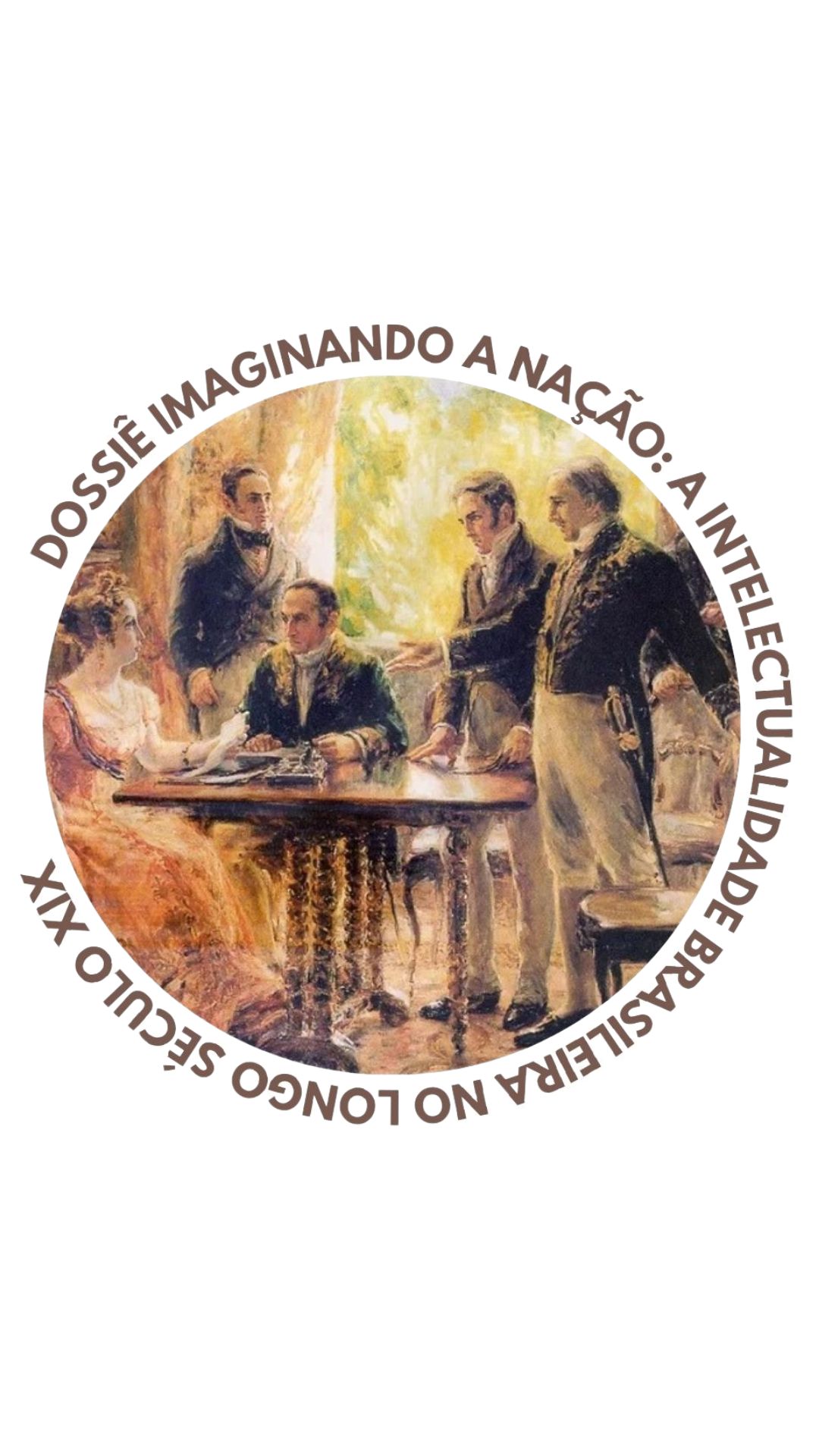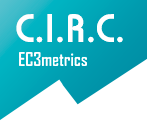A nação imaginada por André Rebouças
um Brasil de D. Pedro II por uma Democracia Rural
DOI:
https://doi.org/10.47456/e-20243521Palavras-chave:
André Rebouças; nação; D. Pedro II; Democracia Rural; monarquia.Resumo
O artigo analisa a visão da nação brasileira idealizada por André Rebouças em dois momentos: nos anos de seu envolvimento na campanha abolicionista nos anos 1880 e no período de seu autoexílio (1889-1898) após a queda da monarquia. Na primeira parte do texto, analisa-se a imagem da nação construída por Rebouças como resultado futuro de seu projeto de intervenção social, voltado para a inclusão de ex-escravizados e imigrantes pobres em uma Democracia Rural. Em sua compreensão, essa comunidade imaginada seria mais democrática por esvaziar o poder dos latifundiários e por garantir a inserção efetiva de grupos marginalizados na esfera produtiva, por meio do acesso às pequenas propriedades de terra. Na segunda parte do texto, apresenta-se a inserção da figura de D. Pedro II como herói e protagonista daquele modelo de nação imaginada por Rebouças, em uma visão idealizada da monarquia deposta e de seu chefe de estado, acompanhada de críticas ao Brasil republicano.
Downloads
Referências
Obras Gerais
A) Obras Completas
ALONSO, Ângela. Ideias em movimento: a geração de 1870 na crise do Brasil Império. São Paulo: Paz e Terra, 2002.
ALONSO, Ângela. Flores, votos e balas: o movimento abolicionista brasileiro. (1868-1888). São Paulo: Companhia das Letras, 2015.
ANDERSON, Benedict. Comunidades Imaginadas: reflexões sobre a origem e a difusão do nacionalismo. São Paulo: Companhia das Letras, 2008.
CARVALHO, Maria Alice Rezende de. O Quinto Século: André Rebouças e a construção do Brasil. Rio de Janeiro: IUPERJ, 1998.
HOBSBAWM, E. A invenção das tradições. Rio de Janeiro: Paz e Terra, 1984.
GRINBERG, Keila. O fiador dos brasileiros: cidadania, escravidão e direito civil no tempo de Antônio Pereira Rebouças. Rio de Janeiro: Editora Civilização Brasileira, 2002.
MATTOS, Hebe. Cartas da África: registro de correspondência (1891-1893), André Rebouças. São Paulo: Chão, 2022.
MATTOS, Hebe. (org.) O engenheiro abolicionista: entre o Atlântico e a Mantiqueira. v. 1. André Rebouças. Diários, 1883-1884. São Paulo: Chão, 2024.
MATTOS, Ilmar Rohloff de. O tempo saquarema: a formação do Estado Imperial. 7 ed. São Paulo: Hucitec, 2017.
MORENO, Jean Carlos. Revisitando o conceito de identidade nacional. In: RODRIGUES, Cristina Carneiro; LUCA, Tânia de; GUIMARÃES, Valéria. (orgs.) Identidades brasileiras: composições e recomposições. São Paulo: Cultura Acadêmica, 2014.
SALLES, Ricardo. Nostalgia imperial: a formação da identidade nacional no Brasil do Segundo Reinado. 2 ed. Rio de Janeiro: Ponteio, 2013.
SCHWARCZ, Lilia M. As barbas do imperador: D. Pedro II, um monarca nos trópicos. São Paul: Companhia das Letras, 1998.
SCHWARCZ, Lilia & STARLING, Heloisa. Brasil: uma biografia. São Paulo: Companhia das Letras, 2015.
SIRINELLI, Jean-François. Génération intellectuelle: Khâgneux et Normaliens dans l’entre-deux-guerres. Paris: Presses Universitaires de France, 1994.
SPITZER, Leo. Vidas de entremeio: assimilação e marginalização na Áustria, no Brasil e na África Ocidental. Rio de Janeiro: EdUERJ, 2001.
B) Capítulo de obras
CARVALHO, José Murilo de. Brasil: nações imaginadas. In: CARVALHO, José Murilo de. Pontos e Bordados: escritos de História e Política. Belo Horizonte: Editora da UFMG, 1999. Vol. 1, Cap. 10, p. 233-268.
CARVALHO, Maria Alice Rezende de. André Rebouças (1838-1898). Agricultura Nacional: estudos econômicos, propaganda abolicionista e democrática. In: PRADO, Maria Emília. (org.) Dicionário do Pensamento brasileiro: obras políticas do Brasil Imperial. Rio de Janeiro: Renavan, 2012. Vol. 1, Cap. 4, p. 31-36.
GOMES, Ângela de Castro & HANSEN, Patrícia Santos. Intelectuais, mediação cultural e projetos políticos: uma introdução para delimitação do objeto de estudo. In: GOMES, Ângela de Castro & HANSEN, Patrícia Santos (orgs.). Intelectuais mediadores: práticas culturais e ação política. Rio de Janeiro: Civilização Brasileira, 2016. Vol. 1, Cap. 1, p. 7-37.
C) Artigos
RENAN, Ernest. O que é uma nação? Revista Aulas, Campinas, v. 2, n. 2, p. 1-21, 2006. Disponível em: https://www.unicamp.br/~aulas/VOLUME01/ernest.pdf Acesso em: 10 de maio de 2024.
DAIBERT JR., Robert. Sonhos proféticos de André Rebouças por uma Democracia Rural: o encontro do “maior inimigo dos Fazendeiros” com as utopias cristãs de Tolstoi. Intellèctus (UERJ), Rio de Janeiro, v. 22, n.1, p. 102-127, 2023. Disponível em: https://www.e-publicacoes.uerj.br/intellectus/article/view/73856 Acesso em: 8 de maio de 2024. DOI: https://doi.org/10.12957/intellectus.2023.73856
DAIBERT JR, Robert. Um Pitágoras africano entre o Brasil e o exílio: André Rebouças e a crença na evolução do cosmos (1888-1893). Varia História, Belo Horizonte, v. 39, n. 80, p. 1-33, maio-agosto, 2023. Disponível em: https://www.scielo.br/j/vh/a/pB9fw36xgRMkCgNQZJHxdnz/?format=pdf&lang=pt. Acesso em: 13 de maio de 2024. DOI: https://doi.org/10.1590/0104-87752023000200013

Downloads
Publicado
Como Citar
Edição
Seção
Licença
Copyright (c) 2024 Revista Ágora

Este trabalho está licenciado sob uma licença Creative Commons Attribution-ShareAlike 4.0 International License.
Revista Ágora (Vitória) © 2005 by Universidade Federal do Espírito Santo is licensed under Attribution-ShareAlike 4.0 International






















